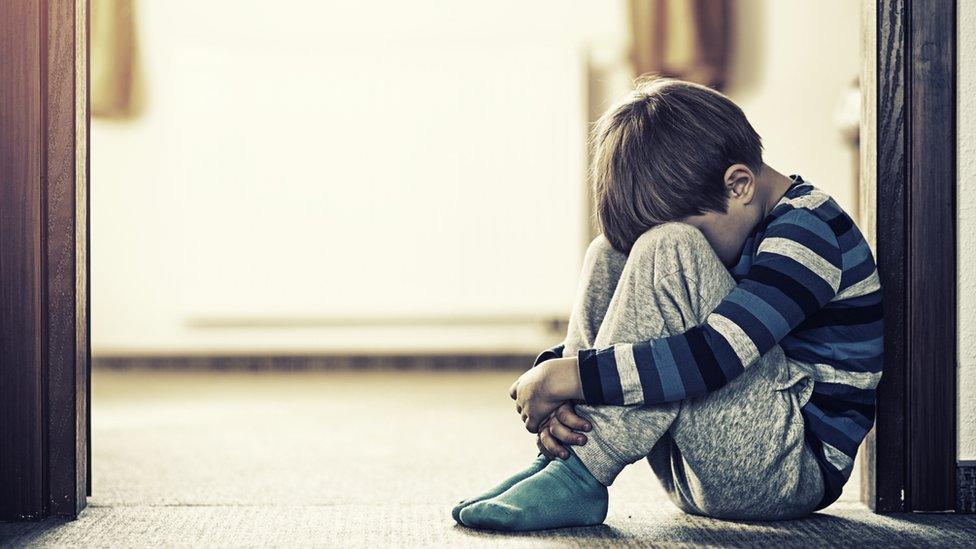Family Courts: New help with 'challenging' legal process
- Published
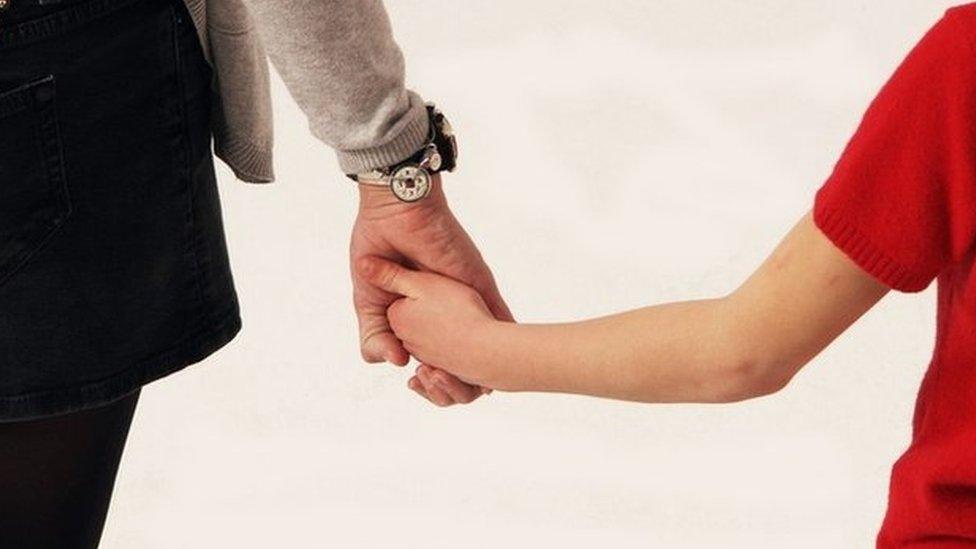
The project will help people who are no longer eligible for legal aid and cannot afford legal representation
"It feels like someone has died in our family. We are grieving."
A man going through the family courts to stop his nephew from being adopted said it was "challenging", with the boy living in care in the meantime.
Steve, not his real name, is using a new support project set up to help people in Wales going through the courts to contest adoption and other family issues.
The Family Court Companion (FCC) is being officially launched later.
It is helping Steve, who is no longer eligible for legal aid and who cannot afford legal representation.
He hopes to challenge the court's decision after being told he could not become his nephew's guardian - after the boy previously lived with him - because he is already a full-time carer.
The project is managed by charity Cais, which helps recovery addicts and people with mental health problems, as well as their families.
So far, it has supported more than 40 families and about 80 children, but it is being widened.
Figures show there were 6,405 looked-after children in Wales in 2018 - a 52% increase since 2003.
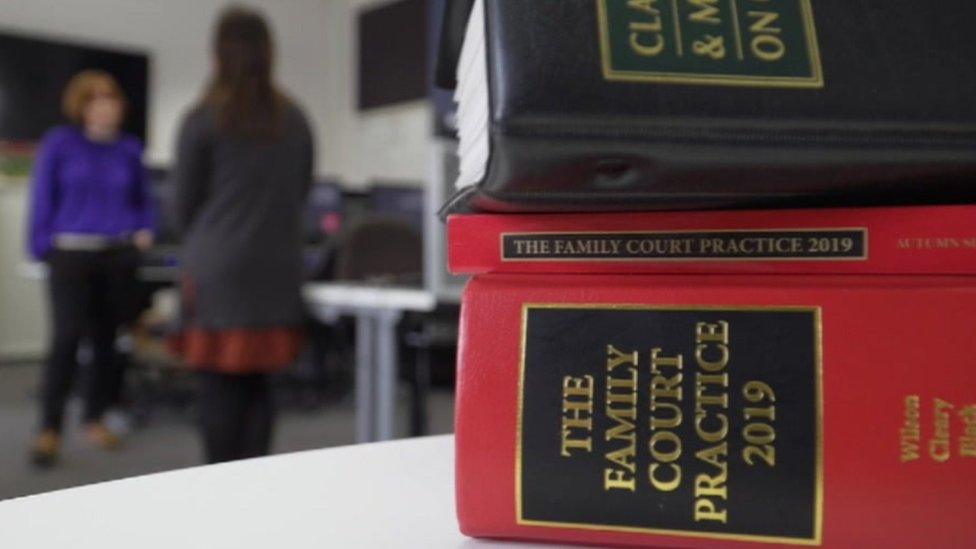
Cais chief executive Clive Wolfendale said the project helps families through the "often-confusing legal process"
Steve said he had never been to court before, so attending the first hearing had been difficult: "It destroyed me. I thought I had a good chance of getting him back.
"When I was visiting my nephew it was hard to keep a smile on my face."
Cais chief executive Clive Wolfendale said family breakdown, the removal of children into care and contested adoption could be "hugely distressing, damaging and disruptive for children and for parents".
He described the project as a "much-needed initiative which will provide objective advocates for families as they navigate the often-confusing legal process".
It has received funding from the National Lottery Community Fund to recruit caseworkers as well train more volunteers to support to families, some described as "deprived and marginalised".
Caseworkers help children remain with their families when it is safe to do so.
Steve said the FCC project had been a "big help" with advice such as filling out "daunting" paperwork.
"You've got to make sure you get it right," he said.
"To have someone there to support you is a big help."
- Published24 October 2019
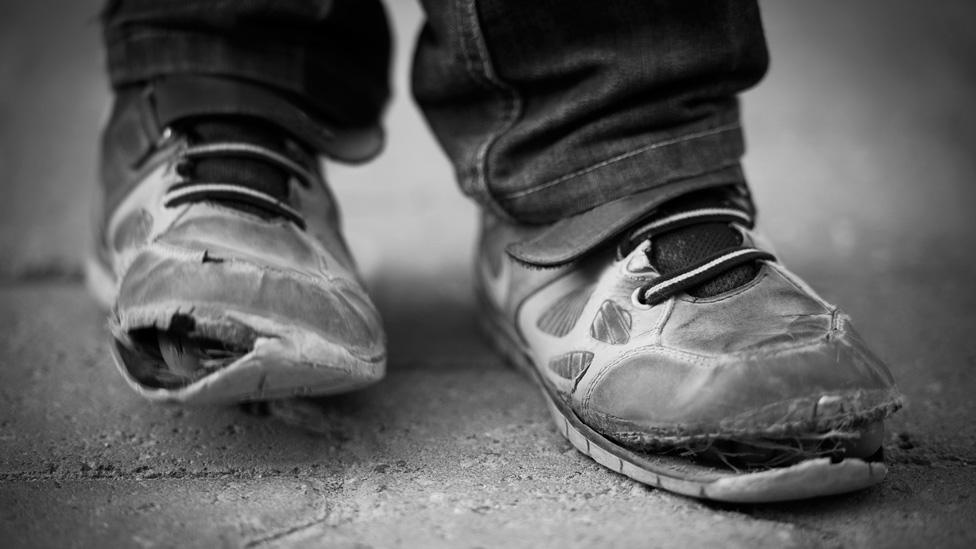
- Published24 October 2019
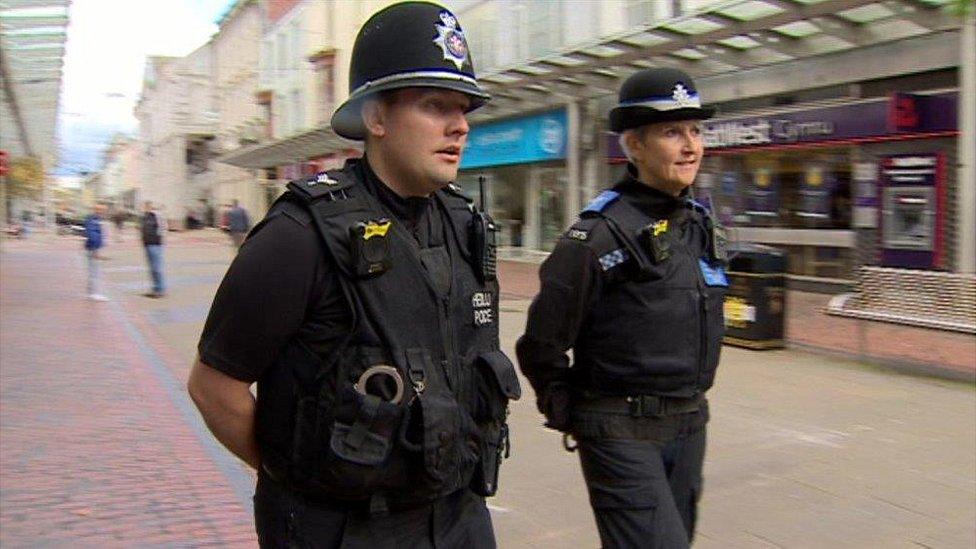
- Published3 July 2019
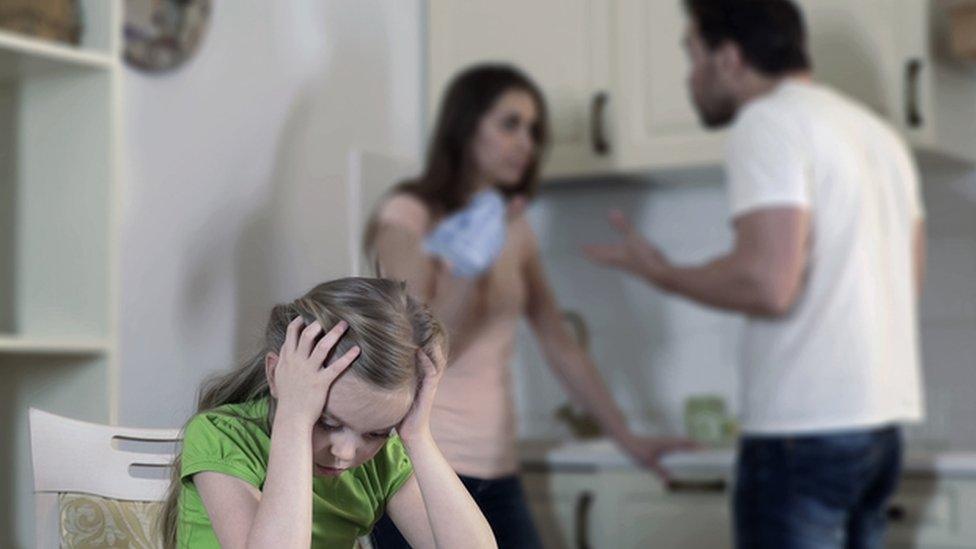
- Published16 May 2019
